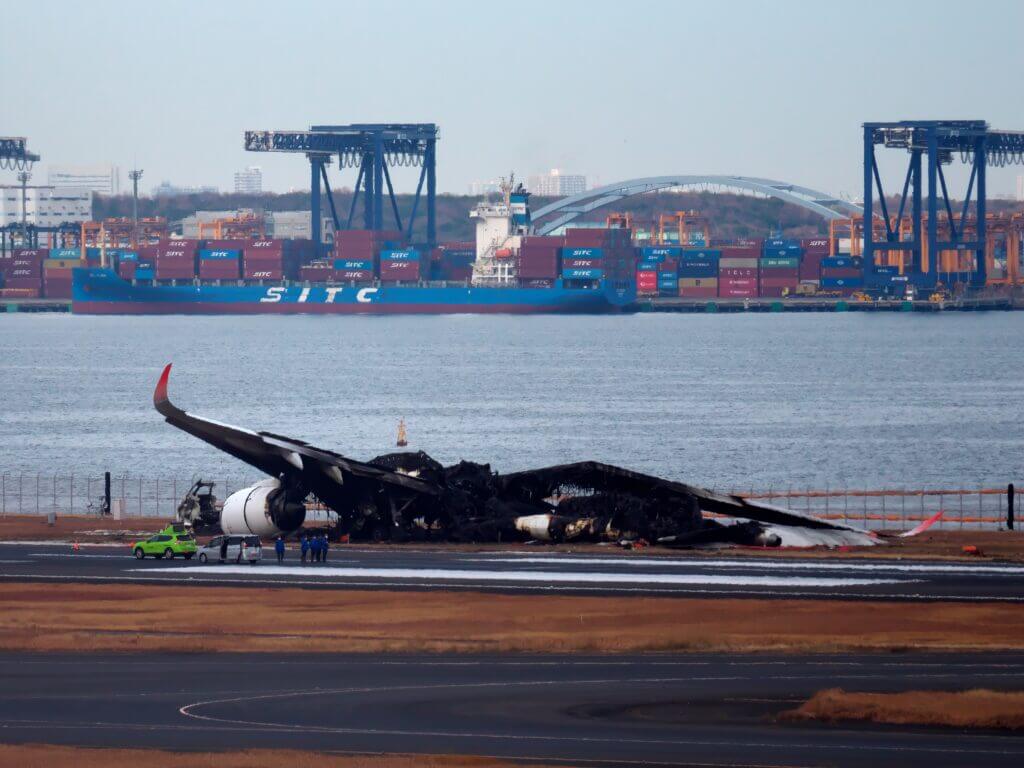Estimated reading time 3 minutes, 1 seconds.
The Transportation Safety Board of Canada (TSB) said it has appointed an “accredited representative” to contribute to the investigation into the fatal Jan. 2 ground collision involving a Japan Airlines Airbus A350 and a Japan Coast Guard Bombardier DHC-8-315 (Dash 8) aircraft at Tokyo International Airport, also known as Haneda Airport.
The A350 passenger jet, Japan Airlines Flight 516, collided with the Dash 8 coast guard turboprop upon landing at Haneda Airport, and caught fire as it made its way down the runway. All 367 passengers and 12 crew survived the accident.

According to several reports, the Dash 8 — which was on a relief mission in response to the Noto earthquake — had not yet received clearance to use the runway. The pilot of the coast guard aircraft escaped with serious injuries, but the five remaining crew members did not survive.
The Dash 8 was originally manufactured by de Havilland Canada in the 1980s; the program was bought by Bombardier in the early ‘90s, and the OEM sold it to Longview Aviation Capital Corp in 2019. Longview later revived the De Havilland Canada name, officially known as De Havilland Aircraft of Canada Limited.
In an email to Skies, a De Havilland Canada spokesperson said the company “will provide whatever assistance is requested by authorities as they commence their investigation.”
In a separate email to Skies, a TSB spokesperson said its “accredited representative, along with technical advisors from De Havilland Canada, Pratt & Whitney Canada, and Transport Canada, will coordinate the exchange of information related to the [Dash 8 coast guard aircraft] and its engines, which were designed and manufactured in Canada.”
The spokesperson noted that the Board is not able to publicly release information on the progress and findings of the investigation “without the express consent of Japan.”








